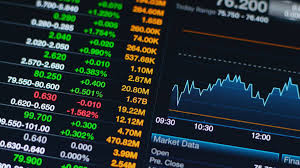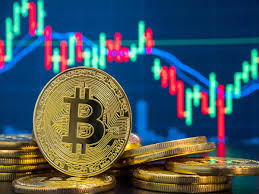
Dow Tumbles 2,000 Points, Bonds Rally After China Retaliates Against Trump Tariffs
China to apply 34% tariff on U.S. goods. Nasdaq falls into bear-market territory, while oil sinks.
A sharp rise in trade-war intensity sent Wall Street spiraling Friday, pushing the Nasdaq into a bear market denoting a 20% decline from its peak.
China's decision to apply a 34% levy to all imported goods from the U.S. next Thursday, after President Trump's tariffs go into effect, rattled markets in part because it further deflated hopes that a global settlement could be reached soon.
Further hitting sentiment, Fed Chair Jerome Powell said the U.S. economy was more likely to face a period of higher prices and weaker growth than seemed possible a few weeks ago because of larger-than-anticipated tariff hikes.
The S&P 500 dropped 6%, the Nasdaq slid 5.8% and the Dow Jones Industrial Average fell 2231 points. The carnage was widespread, with 14 S&P 500 stocks rising for the day and 28 dropping 10% or more. The marketwide toll from the two-day tariff rout surged to a record $6.6 trillion.
The torrent of selling late this week shows investors coming to grips with the grim implications of the standoff. The levies announced late Wednesday were deeper and more aggressive than the business world expected. Retaliation stands to intensify the economic effects of the policies, which stand to reduce consumer income and slow economic growth.
Now investors are bracing for further conflict—none of which is likely to improve the outlook for the global economy or corporate profits, the strongest driver of stock prices.
Even as Trump left the door open to making deals, he vowed new tariffs on drugs and microchips. Investors took little comfort from Trump's stated willingness to negotiate.
JPMorgan analysts on Thursday boosted their odds on a global recession to 60%.
Trump remained unbowed, saying that now is a great time to get rich and that "China played it wrong, they panicked."
Marco Rubio, the secretary of state, acknowledged that "markets are crashing" but said economies weren't, and that global businesses would adjust to the new environment.
Investors drew little solace from an unexpectedly strong jobs report. That showed the economy added 228,000 jobs last month, giving little sign that uncertainty ahead of the tariff rollout had derailed the labor market.
On Friday, major U.S. indexes opened sharply lower before staging a modest recovery late in the morning after Trump said Vietnam's leader wants to cut its tariffs to zero. Another mild rally pushed prices off their lows late in the day.
Overseas markets took fresh hits, with European stocks tumbling more than 4%.
Traders have ramped up bets on interest-rate cuts this year, figuring the Federal Reserve will have to shore up the economy. Oil prices slid further, with benchmark U.S. crude falling to about $62 a barrel, the lowest level since 2021 if they settle there.
Investors rushed into Treasurys, pushing 10-year yields well below 4% before they drifted back up late on Friday. Bonds in other big economies, including Japan, Germany and the U.K., also rallied. Bond yields fall as prices rise.
The dollar, which fell sharply Thursday, rebounded somewhat but remains near its weakest levels of the year
All comments
Comment not found

